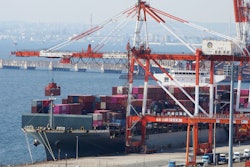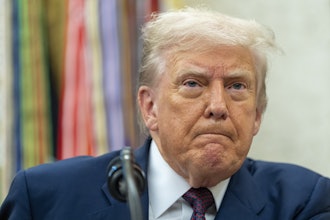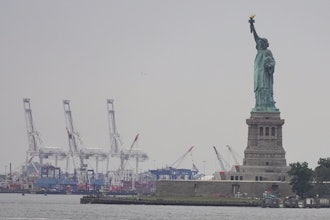
TOKYO (AP) — Japan recorded a trade deficit in its March-April fiscal year but racked up a surplus with the U.S., the Finance Ministry reported Thursday.
Japan’s global trade deficit totaled 5.2 trillion yen ($37 billion) for the fiscal year through March, for the fourth straight year of deficits, according to the provisional statistics.
The surplus with the U.S. ballooned to 9 trillion yen ($63 billion).
Exports to the U.S. are a contentious issue for U.S. President Donald Trump and Japanese negotiators are in Washington to argue their case against higher U.S. tariffs. Japan is a key longtime U.S. ally and major investor in the U.S., employing hundreds of thousands of Americans.
Trump said on April 2 that he planned to impose a 24% tariff on imports from Japan as part of an announcement of higher tariffs on dozens of countries. After financial markets panicked, he put a partial 90-day hold on the import taxes, while increasing his already steep tariffs on Chinese goods to as much as 145%.
Japan still faces a 10% baseline tariff and a 25% tax on imported cars, auto parts, steel and aluminum exports. Most of those duties took effect recently, but they pose a grave challenge for embattled Prime Minister Shigeru Ishiba.
Some analysts say Tokyo could at some point announce surprise concessions, like importing more American rice. Rice holds a special place in the Japanese psyche as the nation’s staple and has long been a protected sector in Japan. But recently a rice shortage has been pushing up prices.
Japan’s annual exports climbed 5.9% from a year earlier, helped by strong shipments of goods like computer chips and vehicles. Imports rose 4.7%. But a weaker Japanese yen made imports more costly.
A recent influx of foreign tourists to Japan has pushed exports higher, since such spending counts as exports.
For the month of March, Japan recorded a trade surplus of 544 billion yen ($4 billion). Exports climbed nearly 4% from a year earlier, for the sixth straight month of gains, although the surge was slower than in February.
Exports to the U.S. rose 3%, while shipments to the rest of Asia grew 5.5%. Exports to China fell, while shipments to Hong Kong, Taiwan and South Korea surged.
“This is likely due to the rerouting of exports within Asia to avoid tariff conflicts with the U.S.,” Min Joo Kang, a senior economist at ING, said in a report.






















